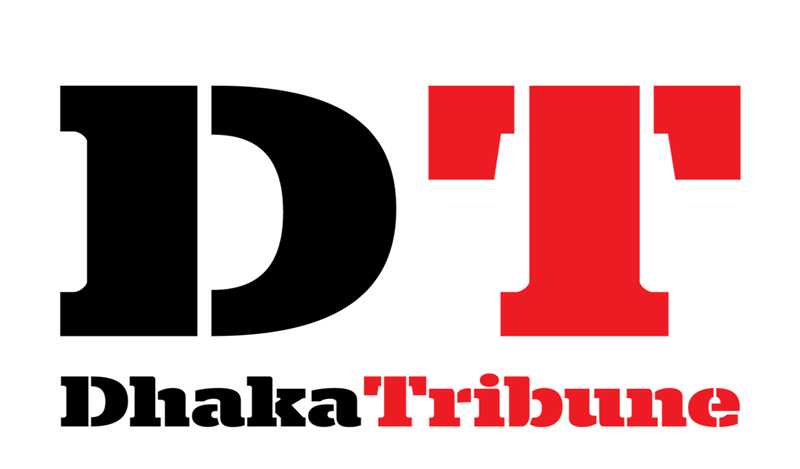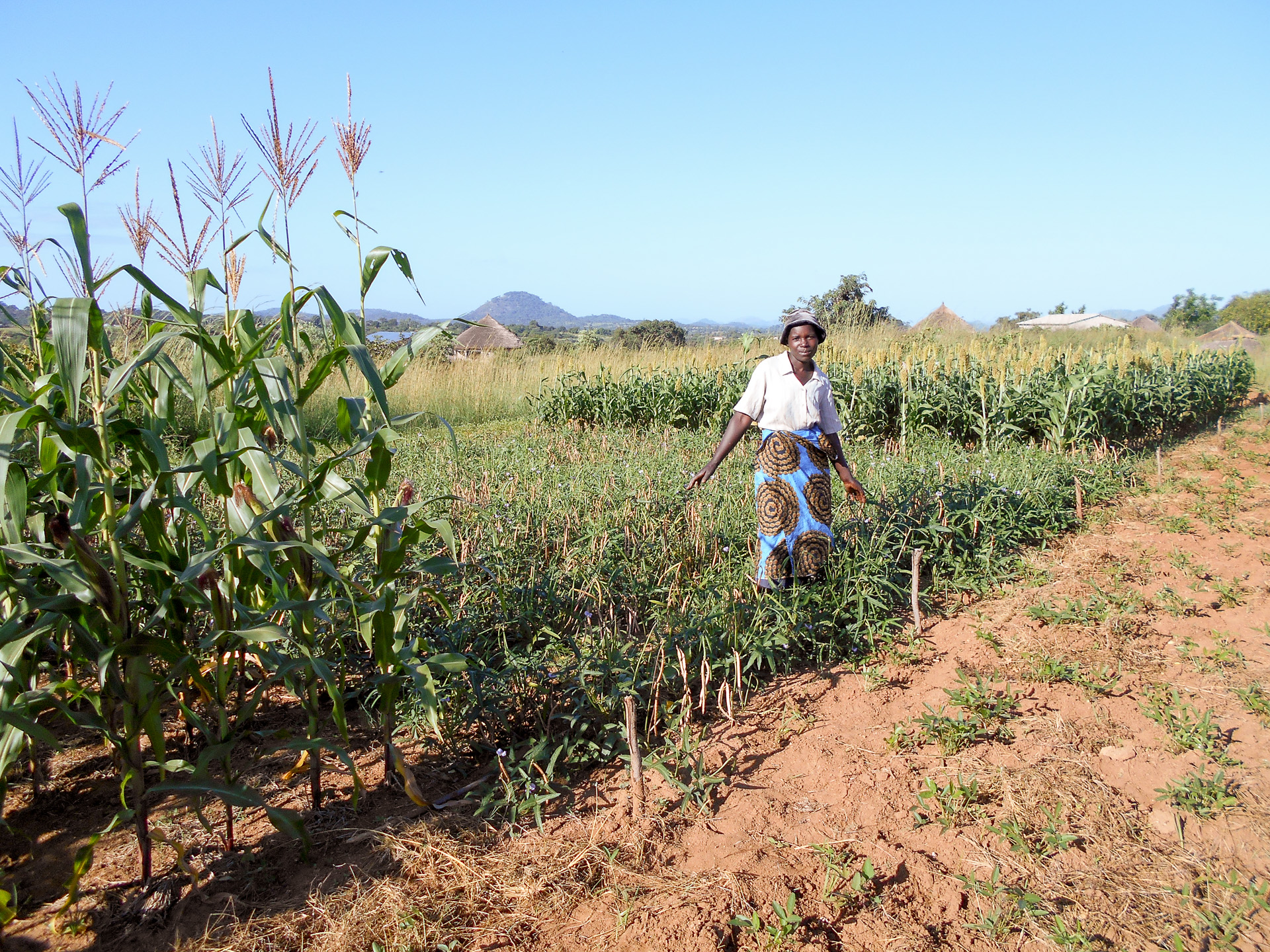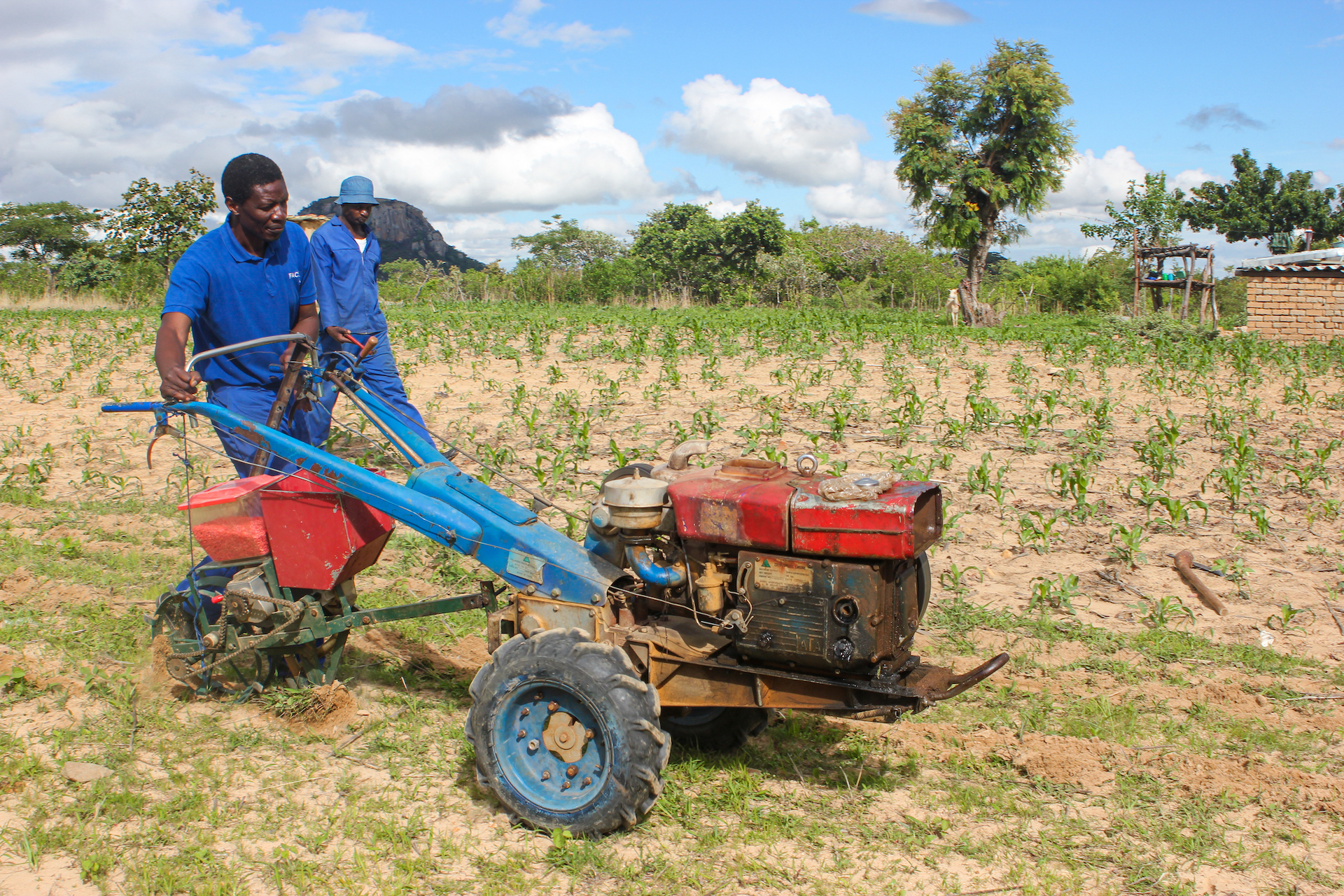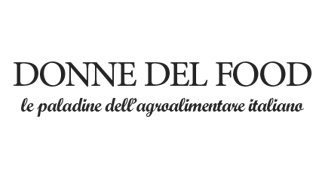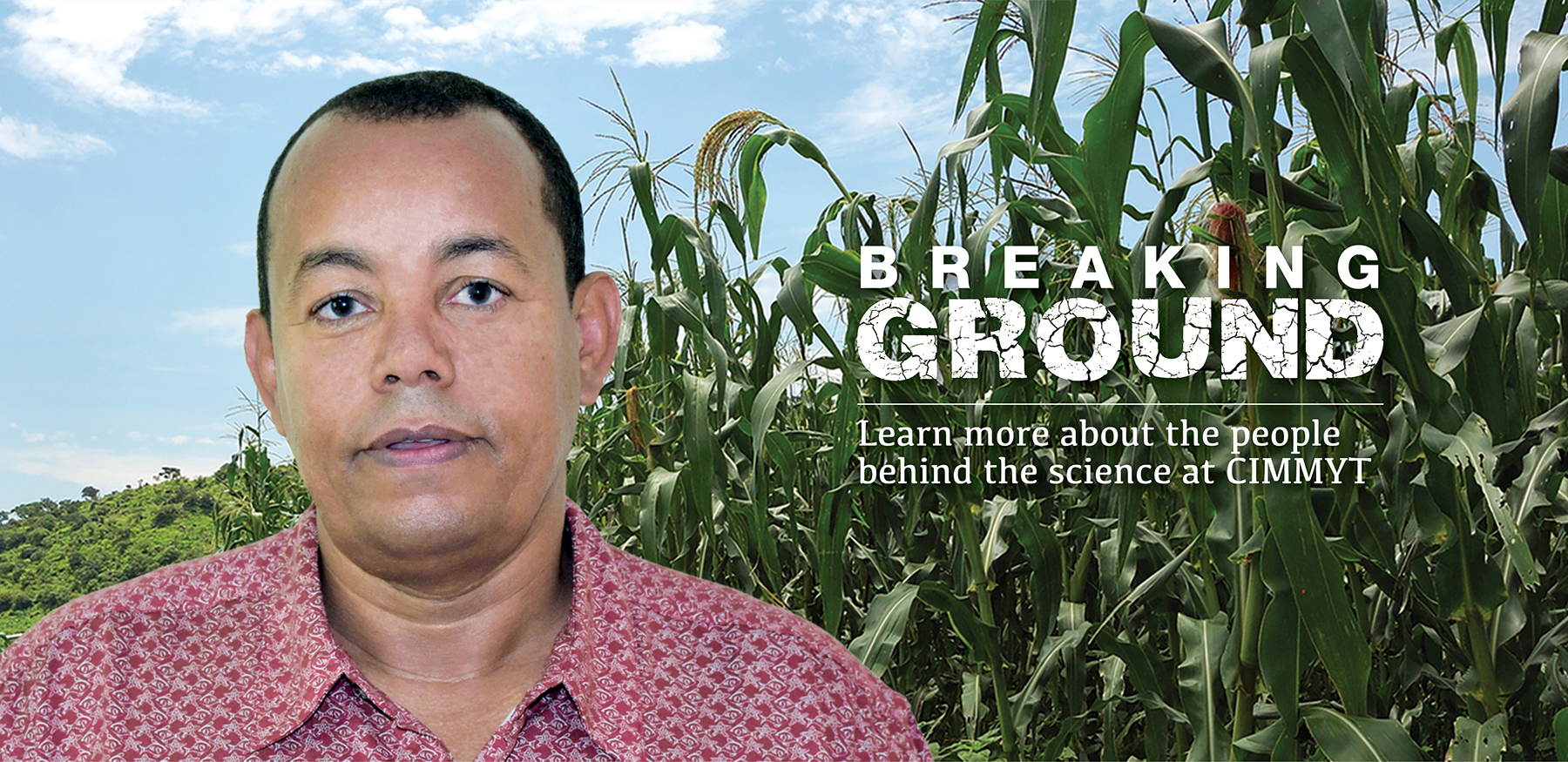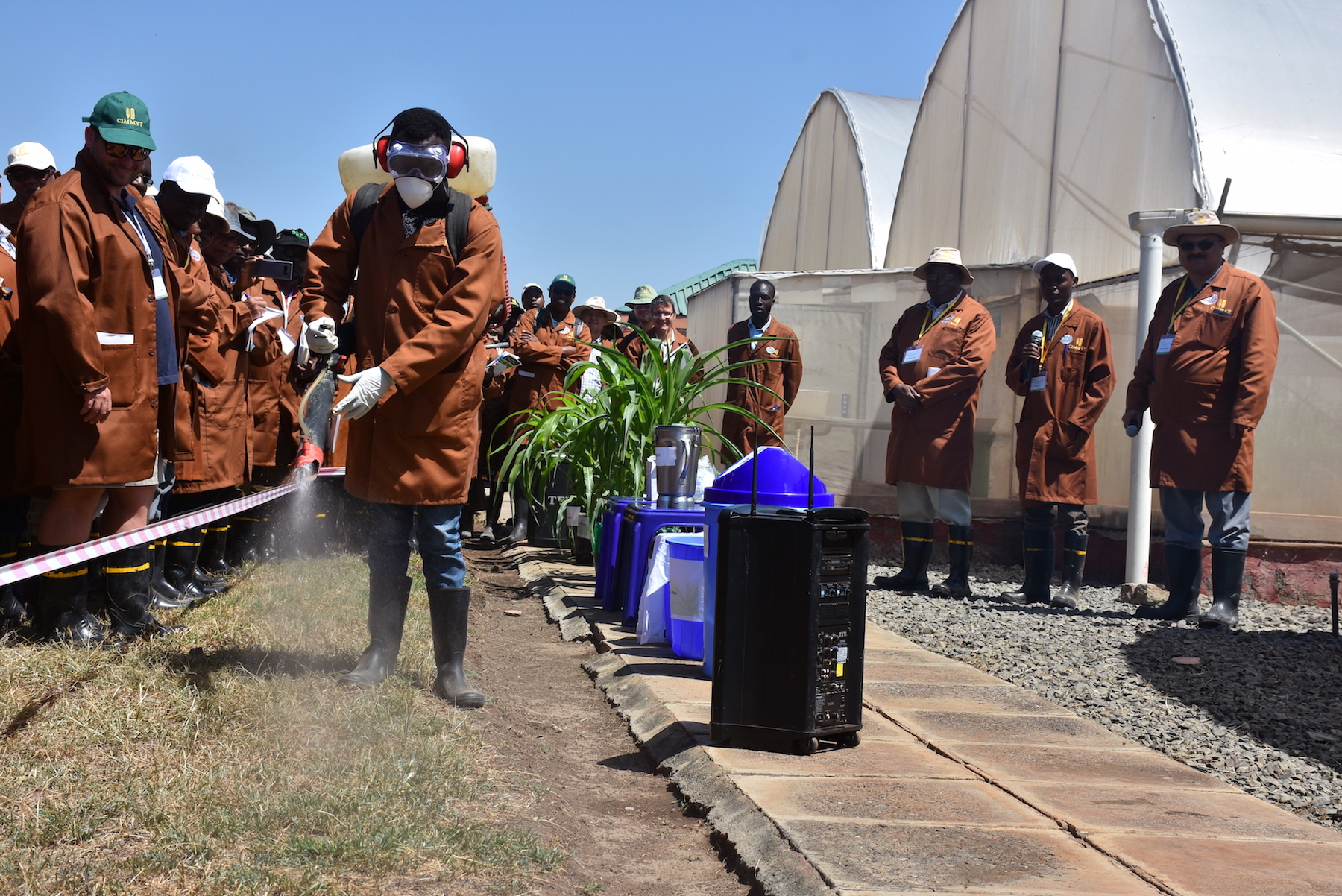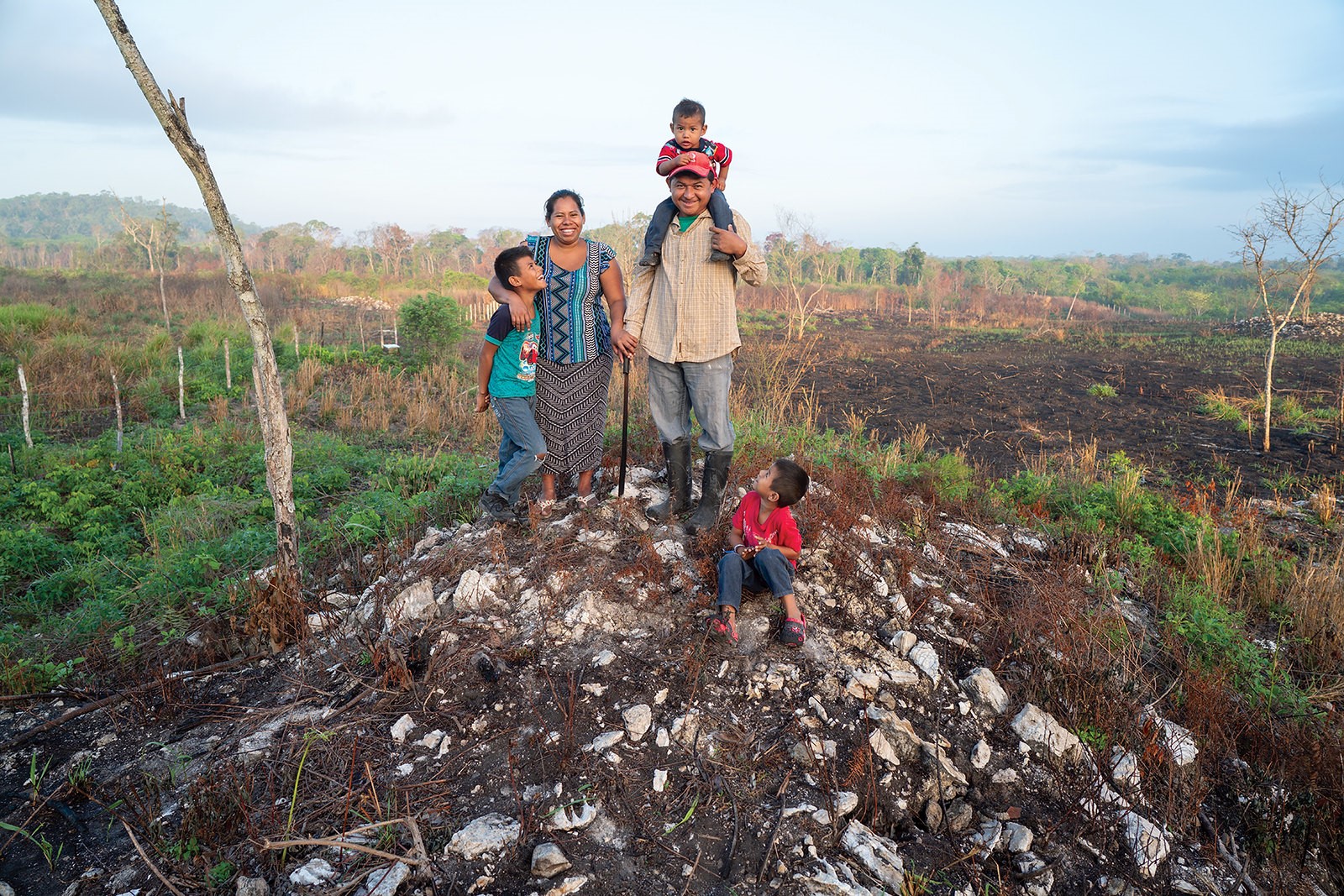Nutrition, health and food security
As staple foods, maize and wheat provide vital nutrients and health benefits, making up close to two-thirds of the world’s food energy intake, and contributing 55 to 70 percent of the total calories in the diets of people living in developing countries, according to the U.N. Food and Agriculture Organization. CIMMYT scientists tackle food insecurity through improved nutrient-rich, high-yielding varieties and sustainable agronomic practices, ensuring that those who most depend on agriculture have enough to make a living and feed their families. The U.N. projects that the global population will increase to more than 9 billion people by 2050, which means that the successes and failures of wheat and maize farmers will continue to have a crucial impact on food security. Findings by the Intergovernmental Panel on Climate Change, which show heat waves could occur more often and mean global surface temperatures could rise by up to 5 degrees Celsius throughout the century, indicate that increasing yield alone will be insufficient to meet future demand for food.
Achieving widespread food and nutritional security for the world’s poorest people is more complex than simply boosting production. Biofortification of maize and wheat helps increase the vitamins and minerals in these key crops. CIMMYT helps families grow and eat provitamin A enriched maize, zinc-enhanced maize and wheat varieties, and quality protein maize. CIMMYT also works on improving food health and safety, by reducing mycotoxin levels in the global food chain. Mycotoxins are produced by fungi that colonize in food crops, and cause health problems or even death in humans or animals. Worldwide, CIMMYT helps train food processors to reduce fungal contamination in maize, and promotes affordable technologies and training to detect mycotoxins and reduce exposure.
FAO: No threat of desert locust invasion in Bangladesh
 Nutrition, health and food security
Nutrition, health and food security
Source: Dhaka Tribune (11 Jun 2020)
While Bangladesh is at low risk of a large-scale invasion of desert locusts, efforts to curb fall armyworm will help in addressing future pests.
SADER reiterates call to transition towards sustainable agriculture
 Climate adaptation and mitigation
Climate adaptation and mitigation
Source: La Journada (5 Jun 2020)
On World Environment and amidst a global pandemic, the Mexican Secretary of Agriculture and Rural Development highlights example of CIMMYT’s MasAgro project.
Conservation agriculture feeds people and protects the environment
 Climate adaptation and mitigation
Climate adaptation and mitigation
Initiative in Zimbabwe pursues holistic and multi-faceted approach to support climate resilience and increase yields.
Researcher says COVID-19 to affect Africa’s food situation
 Nutrition, health and food security
Nutrition, health and food security
Source: News Ghana (4 Jun 2020)
CIMMYT Global Maize Program Director B.M. Prasanna calls on scientists to help countries in finding faster solutions to the effects of COVID-19 on food security.
What can be done to prevent the outbreak of coronavirus from affecting agriculture?
 Nutrition, health and food security
Nutrition, health and food security
Source: Fana Television (3 Jun 2020)
CIMMYT joins EIAR and Ministry of Agriculture on panel discussing strategy to prevent food insecurity in Ethiopia during COVID-19 pandemic.
Farm mechanization under COVID-19
 Innovations
Innovations
As the current pandemic and restrictions create labor constraints, CIMMYT experts discuss the role scale-appropriate farm machinery can play in addressing them.
Fight against viruses, also in defense of maize and our food
 Environmental health and biodiversity
Environmental health and biodiversity
Source: Donne del Food (31 May 2020)
B.M. Prasanna, director of CIMMYT’s Global Maize Program and the CGIAR Research Program on Maize, discusses the viral disease maize lethal necrosis.
Breaking Ground: Yoseph Beyene breeds desirable maize varieties for smallholder farmers in sub-Saharan Africa
 Innovations
Innovations
CIMMYT breeder applies new tools and technologies to accelerate genetic gains, make breeding more efficient, and keep up with the changing dynamics of biotic and abiotic stresses.
Battling devastating viral diseases, also in plants
 Nutrition, health and food security
Nutrition, health and food security
Maize lethal necrosis has taught us that intensive efforts to keep human and plant diseases at bay need to continue beyond the COVID-19 crisis.
Stripe rust hits wheat crop in Nepal
 Environmental health and biodiversity
Environmental health and biodiversity
Source: Seed Quest (27 May 2020)
Nepal Agricultural Research Council and CIMMYT scientists suspect new races of stripe and leaf rust in the Nepal hills and terai in the recent 2020 wheat season.
CIMMYT for Mexico in times of a global pandemic
 Nutrition, health and food security
Nutrition, health and food security
CIMMYT representatives discuss the impact of the pandemic on Mexico and why CIMMYT works towards more resilient agri-food systems with healthier and more prosperous people.
Plant-based materials catch on with home-goods designers
 Capacity development
Capacity development
Source: The Manila Times (26 May 2020)
Mexican designer Fernando Laposse partnered with CIMMYT and works with a village of Mixtec farmers to transform unused maize husks into furniture.
Africa’s smallholders to bear the brunt of COVID-19
 Nutrition, health and food security
Nutrition, health and food security
Source: SciDev.net (25 May 2020)
As COVID-19 pandemic threatens smallholder farmers, it could be an opportunity to shift priorities and increase support to agriculture.
Preserving the legacy of biodiversity
 Climate adaptation and mitigation
Climate adaptation and mitigation
Maize and wheat seeds from all over the world are preserved at the CIMMYT genebank, used to bring new varieties to farmers, and backed up at the Global Seed Vault.
Fawligen registered in Bangladesh
 Environmental health and biodiversity
Environmental health and biodiversity
Source: PR Newswire (18 May 2020)
CIMMYT contributed to rapid assessment and registration of biological control for fall armyworm.
